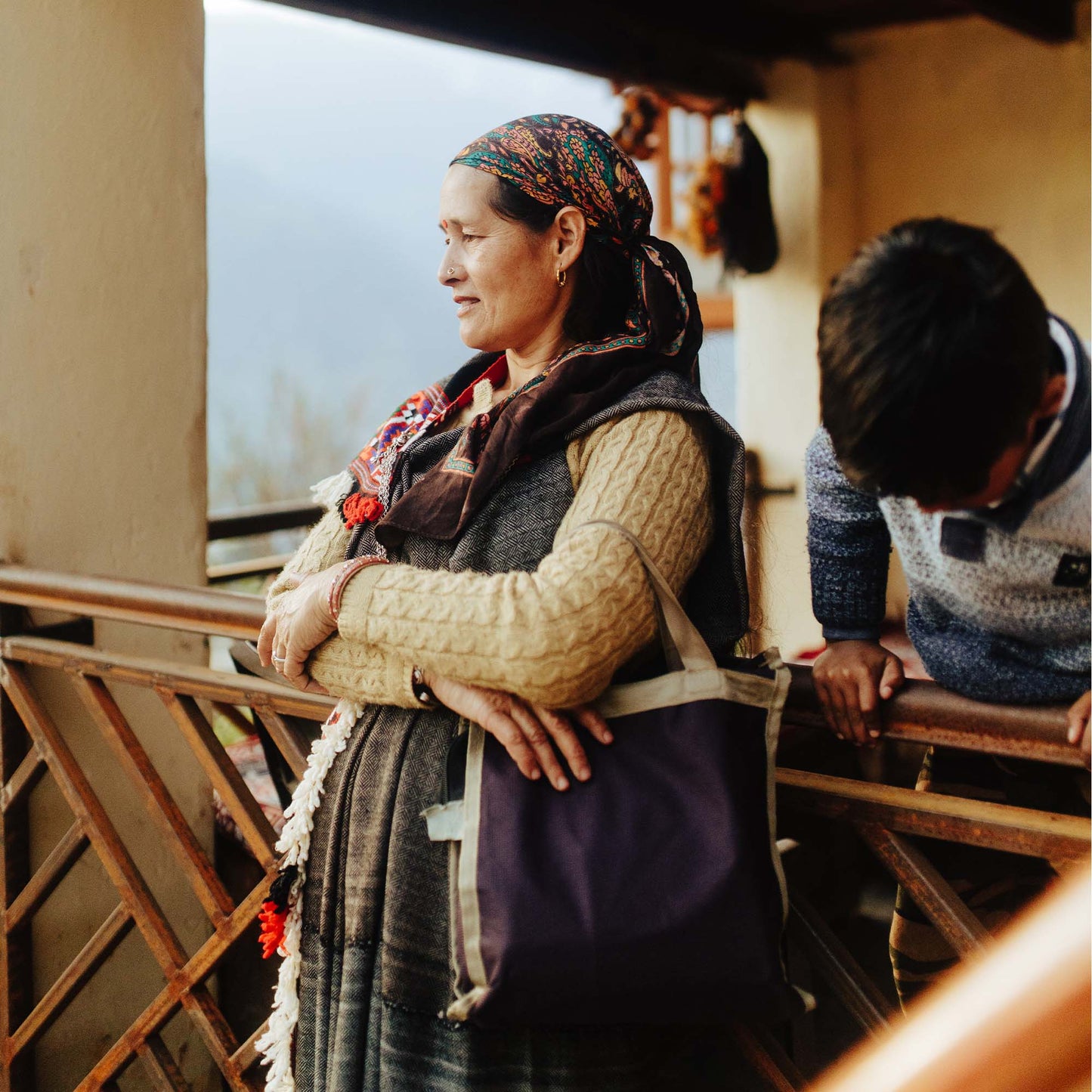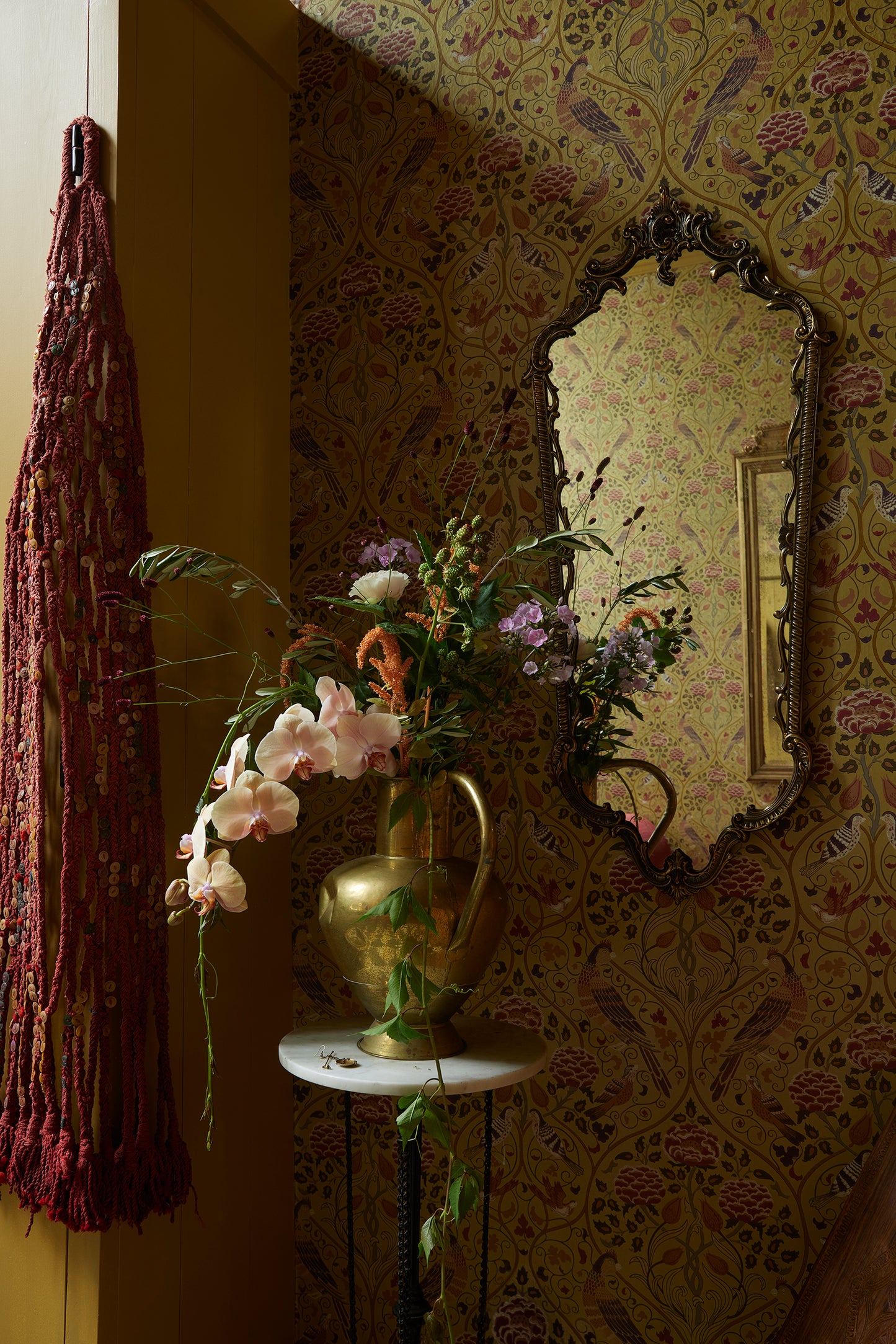The importance of home-based work
“If one changes internally, one should not continue to live with the same objects.” Anais Nin
The home. A beautiful human jungle. A place where one lives. A place to proffer and prosper. To nurture a family. To live. To work. To live and work.
The textile industry. An industry that, as it becomes increasingly automated, is reported by the International Labour Organization to become more defeminized. As they search as to why companies still prefer keeping men in higher paid roles, more women globally will be out of work, despite in 2019 providing 50 million out of the 92 million persons in the workforce (ILO, 2020b).
A home where textiles are made, and possibilities grown. A place where women are empowered. This is our vision at Zazi. Our artisanal partners, The Saheli Woman is one example of an organisation who found solutions in hardship, creating opportunities for women to be empowered through craft. They bring textiles, the home and craft are together into one home.
All around us we see evidence of the separation of home and work. But is it possible to re-imagine how we live and work through craft? For as long as humans have had hands, we have created craft economies. This is an exploration of how home based work is important to help create compassionate futures that empower women through valuable hand made craft.
Let’s Go Home
Home. A woman’s kingdom. A paradise where women dance bare under the moon, a place to be snug, wide-eyed and fierce, to prepare food for mouths, to dream BIG or small, a place to make, experiment with outfits, raise little humans to bigger humans, nurturing the growth of wings, a place to care for those unwell or have taken many turns around the sun, a place for spoons, a place to giggle and hide, a place for tears, for birthing of humans and ideas, a place to be sensual, a place to bleed. A place to be a lover. It is a place of constant cycle and creation. Our home is where we relate to nature and discover the nature within us.
The word ecology was originally written as oecologie. Ernst Haeckl, who coined the term in the 19th century, used “oikos” rather than “oikeios” as the root of “ecology”. The term “oikeios” originally meant house and went on to mean all the things in a house, a community, a family, nature. And as we will discuss with Poppy Okotcha later this month, as part of the Zazi Stories Bloom series, humans are a central part of this ecology.
Xia Minfang writes in his paper The Ecology of Home:
“Now it is time to combine and integrate the two….A home is more than just a building—it is a building that is lived in. In this sense, a complex featuring an inseparable coexistence of humans and nature can also be called a “home”.”
Home as Ecology
Zazi was created for women, by women to create opportunities. Growing automation within factories will impact men and women differently. The International Labour Organisation reported last year that as technology upgrades within textiles, defeminization will occur across the industry:
“… a central concern for the future relates to the potential acceleration of technological upgrading and the adoption of automation… a key issue relates to the potential defeminization of the workforce which often accompanies increases in capital intensity and productivity (Kucera and Tejani 2014; Tejani and Kucera 2021).”
This is, in part, due to the current local social structures, cultural and institutional systems that lead to unequal gendered outcomes but also to the obligations and responsibilities women take on outside of work.
Oh the roles women take on in the home! Adopting Rebecca Solnit’s words, maybe a home
“is a machine to slow down time, a barrier against history, a hope that nothing will happen, though something always does.” (Solinit, 2014)
A person’s power is their ability to adapt, adopt and transform.
A Woman is Not One Thing
At Zazi we have seen how a skill, a textiles craft can transform a woman’s ability to be autonomous and grow her own life into one of craft and power. Last year we interviewed Madhu Vaishnav from The Saheli Women. A textiles collective empowering women through craft and one of our Artisanal partners.
“If you want to change the world, you should empower the women around the world. If one woman is happy it affects so many families. If a woman is empowered, the family is empowered and as a result, the community and the whole nation is empowered. If we want to provide a better future to our children, we have to empower their mothers. A woman is not one thing. When she is working, she is a mother, an artisan and a carer for the home. When she comes to work she carries a lot of work with her, worrying about the children at home. So we created a place, not only for the ladies but for the families, where the children can come when the mothers are working, where they can play, do their homework and jump. One of the most amazing things that we develop is the social support for each other.”
- Madhu Vaishnav, Saheli Women founder -
Madhu Vaishnav and the Saheli Women are located in a remote part of North-Eastern India - in the Rhajastani desert in the small village of Bhikamkor. The importance of home-based work extends across locations and cultures.
In Amsterdam we are trying to create a home where a team of women can work. Work goes beyond the empirical standard of an exchange of activity for value, it is a place where people can create and find meaning. As Madhu puts it, to be empowered. Craft is a word that means to to make something in a skillful way by using your hands.
Zazi is an ode to craft. In Old English, it meant Power. We understand that each individual works differently: from cafes or shared workspaces, from nurseries to bookstores, to kitchens, in the back of TukTuks or Taxis or courtyards, and grandparents' backyards. Yet here, in the hands, and the craft they make, lie the potential for
“Necessity is the mother of invention”
Returning to the wisdom we know in our hands presents us with an opportunity. An opportunity to return to valuing home-made hand-crafts and with. To foster a place for stories and hands that need to be held.
There is such a difference and joy in wearing a piece of clothing made by hand. Domestic creativity is an important part to the making and meaning of homes, an important part to human ecology. Craft is the reflection of the homes of a place and country. Domestic work provides added meaning and value - a story if you like - that can be worn and shared. You are connected to the person that crafted an item. Zazi’s pieces do just this - there is more to them - each part has been attended to by different women, in different ‘homes’.







